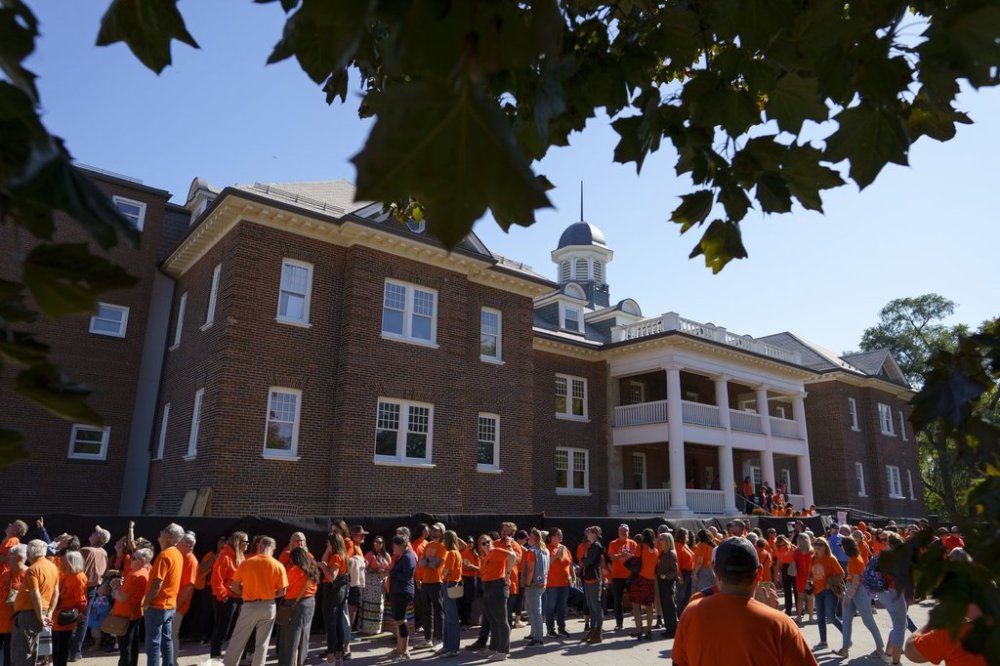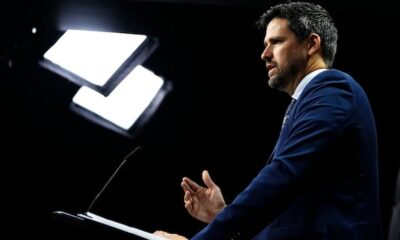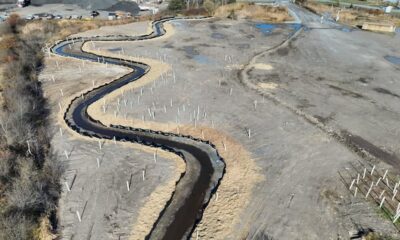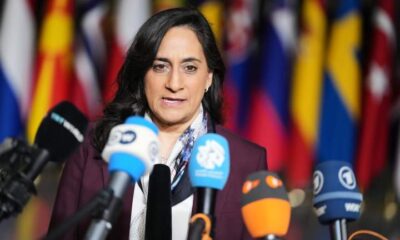Science
Indigenous Peoples Confront Denial of Residential School History

As Indigenous Peoples observed the National Day for Truth and Reconciliation on September 30, 2023, they faced renewed challenges related to the history of residential schools. Some public figures have publicly downplayed or denied the documented experiences of those who attended these institutions, raising significant concerns about ongoing reconciliation efforts across Canada.
The Truth and Reconciliation Commission (TRC), established following a legal settlement between the federal government and survivors of residential schools, concluded that the primary aim of these schools was to erase Indigenous cultures. Between 1857 and 1996, approximately 150,000 Indigenous children were forcibly removed from their families and placed in church-run, government-funded schools. In these institutions, children were prohibited from speaking their native languages and often faced severe abuse. An estimated 6,000 children died while attending these schools, with experts from the National Centre for Truth and Reconciliation suggesting the actual number may be significantly higher as they continue to review millions of records.
Public Denial and Its Consequences
The federal government recognized September 30 as the National Day for Truth and Reconciliation in 2021, following revelations from the Tk̓emlúps te Secwépemc First Nation. Their ground-penetrating radar survey identified around 200 potential unmarked graves at a former residential school site in Kamloops, British Columbia. Leading up to this year’s commemoration, several prominent individuals made statements that undermined the historical realities of residential schools.
On the designated day, former British Columbia Conservative MLA Dallas Brodie, who was expelled from the party for disparaging remarks about survivors, shared a trailer for a video titled “Making a Killing: Reconciliation, Genocide and Plunder in Canada.” Additionally, a staff member of the Conservative Party of British Columbia was terminated after labeling the Survivors’ flag, which honors those affected by residential schools, a “disgrace” and a “fake” flag that perpetuates “untruths” about Canadian history. In another instance, Maxime Bernier, leader of the People’s Party of Canada, claimed on social media that “no bodies were found,” dismissing the notion of genocide as a “hoax.”
In response to Bernier’s comments, Mandy Gull-Masty, Indigenous Services Minister, issued a strong condemnation, stating, “They show neither humility, nor respect, nor the honesty required of anyone who claims to speak for Canadians.” The Assembly of First Nations has referred Bernier’s statements to the Royal Canadian Mounted Police (RCMP) as potential hate speech, emphasizing that First Nations have faced discrimination and hate speech since Canada’s inception.
Historical Context and Ongoing Challenges
Historian Sean Carleton described the phenomenon of residential school denialism as a tactic to distort facts and undermine public trust in survivor accounts and reconciliation initiatives. He noted, “It’s a constant sowing of seeds of doubt in things that we don’t need to be doubtful about.”
In response to the growing denialism, Leah Gazan, a New Democratic Party (NDP) member, previously introduced a private member’s bill aimed at criminalizing the denial of residential school histories. Although the bill did not progress due to the timing of the spring election, it proposed penalties for those promoting hatred against Indigenous Peoples through denial or misrepresentation of the residential school system. Gazan highlighted the urgency of addressing such denialism, stating, “If we can’t keep survivors safe, we’ve got a problem.”
Marc Miller, former minister of Crown-Indigenous relations, reflected on the need for public education regarding the historical context of residential schools, noting that many Canadians only began to learn about these issues in 2021. He emphasized that the atrocities committed in residential schools were real and documented by survivors, underscoring the painful truths that many Canadians are now grappling with.
As the conversation around reconciliation continues, it remains crucial to honor the experiences and stories of survivors. The path forward demands a commitment to truth and understanding, ensuring that the historical injustices faced by Indigenous Peoples are acknowledged and addressed.
-

 Politics4 weeks ago
Politics4 weeks agoSecwepemc First Nation Seeks Aboriginal Title Over Kamloops Area
-

 World5 months ago
World5 months agoScientists Unearth Ancient Antarctic Ice to Unlock Climate Secrets
-

 Entertainment5 months ago
Entertainment5 months agoTrump and McCormick to Announce $70 Billion Energy Investments
-

 Science5 months ago
Science5 months agoFour Astronauts Return to Earth After International Space Station Mission
-

 Lifestyle5 months ago
Lifestyle5 months agoTransLink Launches Food Truck Program to Boost Revenue in Vancouver
-

 Technology3 months ago
Technology3 months agoApple Notes Enhances Functionality with Markdown Support in macOS 26
-

 Lifestyle3 months ago
Lifestyle3 months agoManitoba’s Burger Champion Shines Again Amid Dining Innovations
-

 Top Stories2 months ago
Top Stories2 months agoUrgent Update: Fatal Crash on Highway 99 Claims Life of Pitt Meadows Man
-

 Politics4 months ago
Politics4 months agoUkrainian Tennis Star Elina Svitolina Faces Death Threats Online
-

 Sports5 months ago
Sports5 months agoSearch Underway for Missing Hunter Amid Hokkaido Bear Emergency
-

 Politics5 months ago
Politics5 months agoCarney Engages First Nations Leaders at Development Law Summit
-

 Technology5 months ago
Technology5 months agoFrosthaven Launches Early Access on July 31, 2025




















